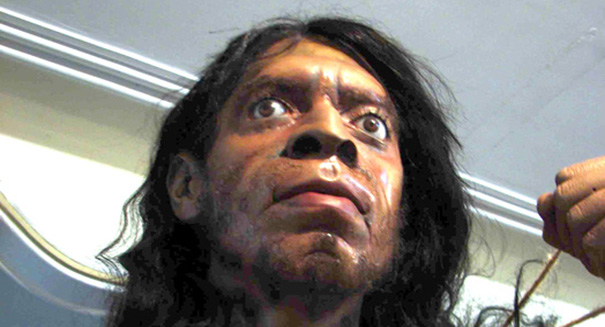Our ancestors didn’t just have inter-species sex with Neanderthals.
A new DNA study has found that our forefathers interbred with another mysterious group of hominins, the Denisovans, on at least two occasions.
In 2010, scientists announced the discovery of an extinct species of Ice Age humans called Denisovans, known only from bits of DNA taken from a sliver of bone in the Denisova Cave in Siberia. Recent research suggests that our Homo sapiens ancestors were intimately in contact with Denisovans. According to a new paper published by researchers at the University of Washington in Seattle, there were at least two distinct episodes of Denisovan genetic intermixing between the two species.
It was first shown that humans interbred with Neanderthals 50,000 years ago, 100,000 years ago. Later, a 2016 study found that Oceanic individuals hold substantial amounts of not only Neanderthal, but also Denisovan DNA. For instance, the inhabitants of Melanesia, a subregion of Oceania, have between 4% and 6% Denisovan DNA. This fact itself is intriguing because we’re talking about an isolated population on a relatively inaccessible island, thousands of miles away from the Altai Mountains in Siberia.
Sharon Browning, a research professor of biostatistics at the University of Washington School of Public Health, along with colleagues studied 5,600 whole-genome sequences analyzed from individuals from Europe, Asia, America, and Oceania, then compared them to the Denisovan genome.
The analysis revealed that the genomes of two groups of modern humans with Denisovan ancestry are uniquely different, suggesting there were two separate episodes of Denisovan admixture. Specifically, the analysis showed that modern Papuan individuals contain approximately 5% Denisovan ancestry, while East Asians carry about 0.2% Denisovan DNA. It’s not yet clear what effects this Denisovan ancestry might pose to both populations, Browning told me.
“The major challenge was in developing a statistical method for detecting segments of archaic introgression in modern human genomes that would be sensitive (able to find such segments), specific (not yielding a lot of false positive results) and computationally efficient for analysis of thousands of modern human genomes. We spent a lot of time working on our method, testing it on simulated and real data, to address these challenges,” Browning told ZME Science.
Scientists were already aware that Papuans had significant amounts of Denisovan ancestry and that East Asians also bore signs of this admixture, but to a lesser degree. However, the assumption was that the Asian Denisovan ancestry was achieved from an admixture with an Oceanic population. The new work shows that this was not the case. Instead, East Asian populations must have interbred with Denisovans in a separate event, judging from the presence of a second set of Denisovan ancestry that could not be found in South Asians and Papuans. “This result was unexpected,” Browning said.
“When we compared pieces of DNA from the Papuans against the Denisovan genome, many sequences were similar enough to declare a match, but some of the DNA sequences in the East Asians, notably Han Chinese, Chinese Dai, and Japanese, were a much closer match with the Denisovan,” she said in a statement.
Browning thinks it’s possible that the ancestors of today’s Oceanians admixed with a southern group of Denisovans while the ancestors of East Asians admixed with a northern group. Perhaps upcoming studies of other Asian populations, as well as others throughout the world like Native Americans and Africans, might shed valuable new clues.
“We plan to apply our methodology to further worldwide populations, and see if we can find traces of introgression from archaic humans other than Neanderthals and Denisovans,” Browning told me, adding that “Our work helps to further reveal the complexity of human demographic history.”















